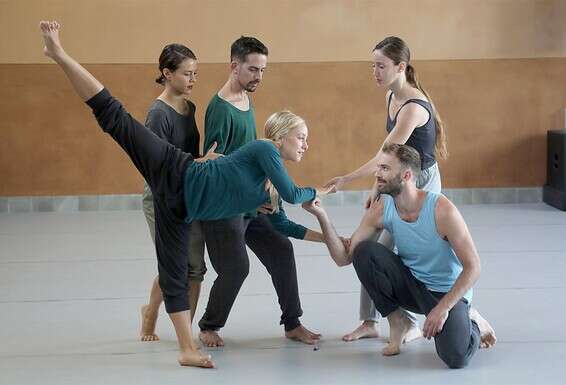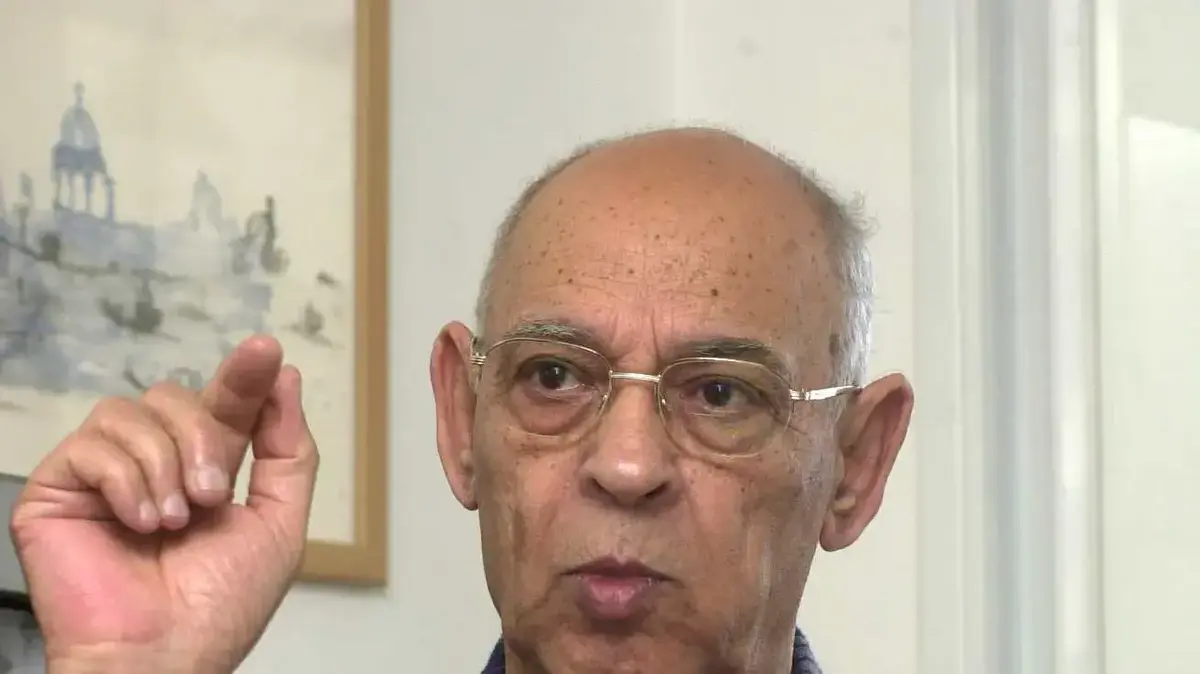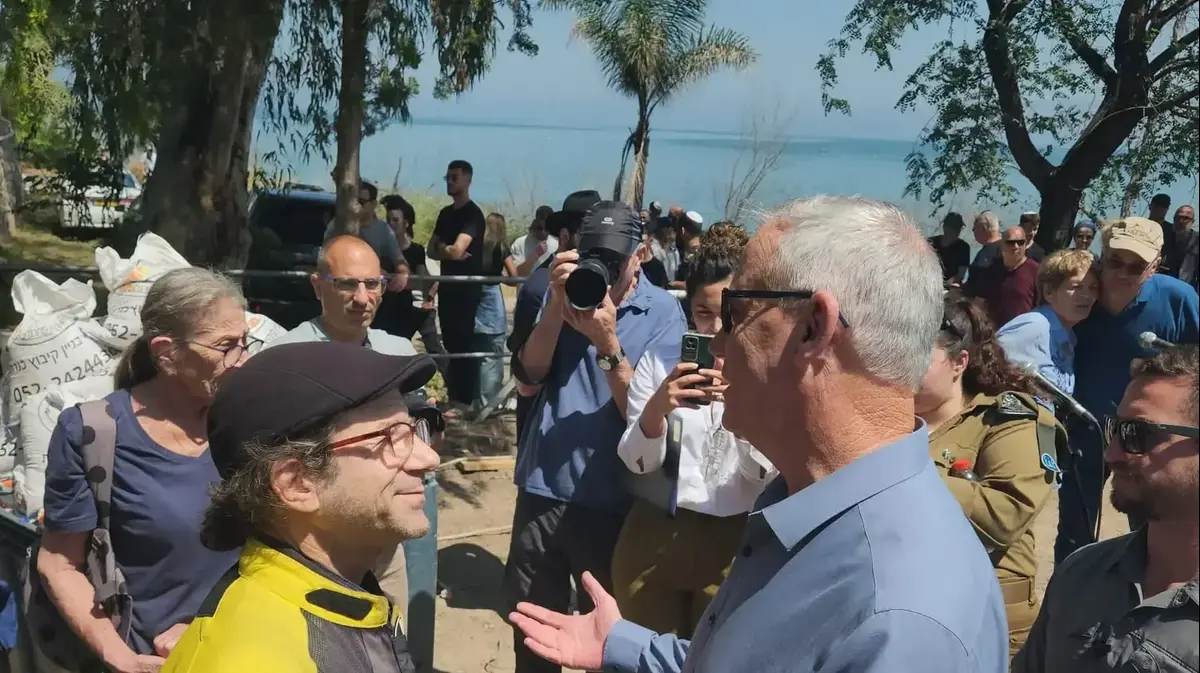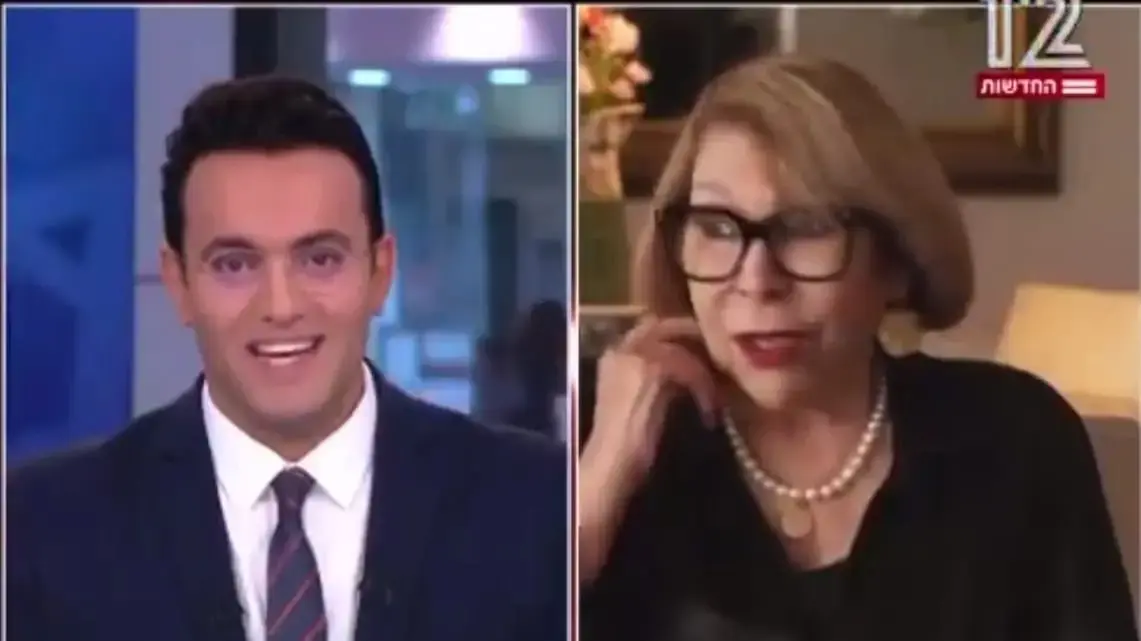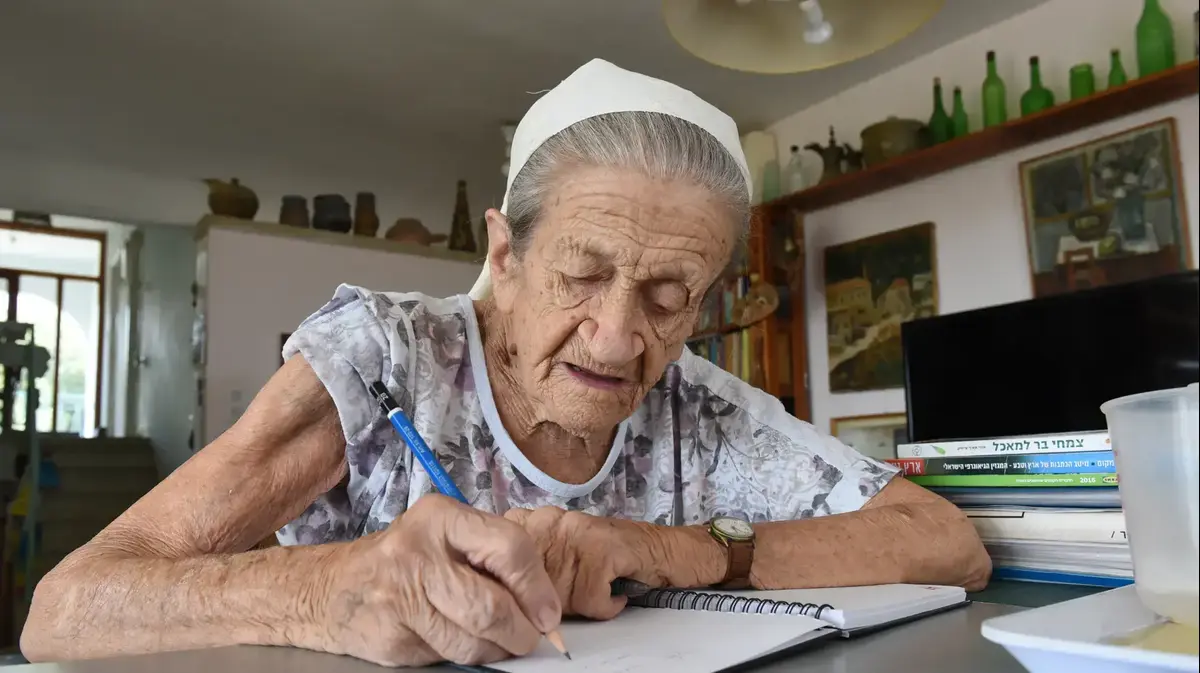Corona Cabinet gave green light to cultural world this week to move from street protests to showrooms • But industry is wary of early joy • Stations this week another battle of cultural industry workers, which ended with the first screen lift
"Circular change to be considered in all types of populations." Demonstration of cultural industry workers
Photo:
Gideon Markowitz
Shortly after the big demonstration began this week by the culture industry workers in front of the Ministry of Finance in Jerusalem, a group of young people passed the demonstration and murmured to herself: "Another demonstration by leftists." Thus, quite simply, the internal conflict of passersby was resolved in the face of the thousands of people who came to protest their financial situation and what they defined as a lack of a listening ear by the authorities.
Public sentiment has resolved itself from pity or identification from the political scene - it is, therefore, a demonstration by leftists. In a country that has been addicted to TV shows about unsuccessful matches and watching Netflix over the past three months, it might be hard to expect anyone to remember that once again we would go on shows and not get stuck on the couch in front of a screen. The decision of the Corona Cabinet to bring the performances back to 250 people (and up to 500 with the approval of the Director General of the Ministry of Culture) has yet to prove itself - at the box office, and especially with the adaptation of the artists and the audience to the new situation.
It was nice to see famous artists alongside "lesser-known" backstage people, but the public and the government seemed to have shown indifference. Yair Lapid was still embalmed in a suit between the protesters, but the line was not heard despite his cheers. The famous artists who came further tried to insist that there is no right or left issue here but mainly livelihood concerns, but it was in the public consciousness that those who were first to close would be the last to open, and it is doubtful that anyone really matters. "Leftists" was the word heard by passersby when the gang tried for a moment, unsuccessfully, to block a road or two.
"Yes, this is something new, I have been to all the demonstrations, but it is that we have been left-leaning for the last time and repeating all the time," explains Aviv Dinor, a technical producer at major events, who has been sitting at home for three months for a job and is satisfied with unemployment benefits of NIS 5,700 a month: Think this protest is just Israel Katorza or Aviv Geffen, they don't understand that it is for us too. There are hundreds of people behind every show you go to. I hear we are called 'leftists' and wonder what it has to do with. And I enjoy it every minute, and I can't understand the politics of politics at all.
"There have been occasions when I have been running events, here in Jerusalem, and working 36 hours straight on my feet, because I said that's why I'm at this job: being part of something big that makes people happy. I care about left or right? It's a profession that does love."
The lack of knowledge is the worst. Vertigo Dance Company // Photo: Gideon Markowitz
Dinor has come to every demonstration, but inside he feels that no one in the tall windows understands: "I understand that we have no listening ear at all, my married friends and family members have given up and some have never stopped attending these demonstrations. With 12 years of experience and 2,000 events behind me, I tell you I really don't see the horizon.
"When will there be events? Conferences? You know when I realized we have no power? When the hand on the Shelter, which is the events of independence, went through with no sense of anything missing: no fireworks, no deaths, no beacon ceremony, no events for people whose hand they didn't reach. That our lobby is weak. "
Dinor says that on the way to the demonstration, they also shouted "You make millions". "Forget our big livelihood is in the summer. From October to April the work is cut in half and we live on savings. This summer is going to be like we won't have a living, so what do we expect to live? But beyond the financial matter, there is the feeling that no one is referring, no matter how many demonstrations More done. "
At the heart of the rally, various artists, like Moshe Datz, for example, insisted that the business was non-political. Miri Messika spoke of the fact that this money is still from the artists because after all, they have paid income tax all their lives, but here it was mostly convinced the convinced: "soul or war" shouted the shirts and signs, but the windows in the surrounding offices remained closed, so that the cool air remained The air conditioner will not mix with the warm, warm air of the early summer of Jerusalem.
A sign of the next. Dochin // Photo: Gideon Markowitz
"You are wounding the wounded on the ground," the calls continued to echo until the promise of the Prime Minister's Office, which is, quite soon, has a meeting with him. For a moment, and in conjunction with the media coverage, this protest seemed to have finally registered its first success. But of course, it was only a moment that would soon pass.
"Banging from here to here"
On the mother road between Jerusalem and Tel Aviv, within a pastoral landscape, the veteran dance group Vertigo is practicing for her. In recent years, Israeli dance has experienced a rash he did not know. From Susan in Tel Aviv to all corners of the country, and from there to the entire world, Israeli dance has become something in the international arena.
This summer was supposed to be packed with festivals and events - but now, in spite of the changes going on in the Israeli cultural world, everyone in his own cultural world had to think of creative solutions to survive artistically, but first of all - financially.
"To get a dancer or dancer back in dance takes at least a month," explains Adi Shelle, CEO, artistic partner and founder of the dance troupe whose "The Birth of Phoenix" show happens on the ground. "And now every time we set out and start selling Tickets for the show, we received Berks. We sold tickets for a show that was supposed to take place this week, but then the government changed the decisions and we had to call people and tell them that the show was postponed again. This situation is a problem for us. I argue that ignorance is the worst situation for the world of culture. You move on, there Berks and back again. I want to know if returning or not. The uncertainty is the worst. "
Relative indifference on the part of the public. Protest in Jerusalem // Photo: Gideon Markowitz
The show in question came up in 2004 as an ecological show. A small, open-air audience and a limited number of dancers. Who knew then that the day would come and this show would answer the "purple character" category in a post-apocalyptic world where entertainment shows were banned until further notice.
Noa Wertheim, who is conducting rehearsals by hand, was able to come up with something that suddenly became what could become the standard in the Israeli dance world: "I see a lot of good intentions on the part of the new minister, but I feel that in a moment a big wave will come and bring us back. The discussion is not just financial, it takes thinking here how to bring Israeli culture back to work, to pour money and what? Why don't we all consult and try to do common thinking? People cannot survive without culture and so I am optimistic, but it is not just a question of money. "Because even in the extreme of closure, I saw the positive things that could affect my work. But now everything is going on so extreme because we seem to be bumping from here to here."
If there is one thing that encourages the duo that runs this band, is the amount of supportive phones that come from dance aficionados in Israel. The tickets are sold even though the shows are questionable, but the dance scene roars: "It gives hope not only from the financial side, of course, but a belief that we are a part of people's lives and that is lacking," explains Shaal. "When we hear reviews of the world of culture, which it does or does not represent the people, I always mention that when we perform in the world in all the great halls, and with us other Israeli dance bands, so it's a great pride not only for us, of course, but for the entire Israeli dance, And the state also knows how to enjoy it. "
"Unite only in distress"
Just over 60 miles away, Arkady Duchin and Natasha's Friends are rehearsing for the first big Israeli summer show at the Corona Post, which is set to be held this Thursday under the well-known restrictions at the Empress in Caesarea, perhaps the blow to the Israeli music world.
The appearance of the Natasha would mark a first return to normalcy; Rejection of the show may mark the end of the current summer for the Israeli cultural and entertainment world. The "Bella Bella" radio show, which returned to the stages this year in an upgraded version, began as a staggering success and with full halls across the country, but then the Corona arrived and interrupted the whole thing, just ahead of a busy summer.
"We rehearse and hope for the best, but in the end only God decides what will happen," explains Duchin with a sad smile. "The thought that it's up to us is a little irrelevant. I don't want to be told Arcady repents, but I feel that this period was supposed to teach us something, and it doesn't happen."
"The people cannot survive without culture." The demonstration, this week // Photo: Gideon Markowitz
Dochin refused to take part in the various artists' demonstrations, his criticism is clear and sharp because of one of the frustrations of this industry, which he has been a part of for the past 30 years, and on the other hand his insistence on exacerbating the protest of the cultural world from the rest of the public - which is currently suffering financial difficulties The Corona.
"I don't like the fact that we artists come together only when there is distress, and on other days we almost don't relate to each other. After all, we can't get together, every day we are jealous of each other, don't want that song of us to be on the playlist and ours. Yes, that's the truth. The artists are an egoist people, and such a demonstration will not change anything in my humble opinion. I come from a country where as a child I knew that demonstrations bring people like Stalin and Lenin, and it doesn't matter if you scream louder than the other. "
On the one hand, when you hear the band's so-well-known hits, you suddenly realize how much sound and live performance have been so lacking in our deadly cultural life lately, yet, Duchin seeks to bring us and the world of culture back to the ground: "Okay, so let's put our shows back And we're all going to come back, I think of the falafel seller, the one who wants to come to the show but wondering where exactly he'll bring money to the ticket? We can't isolate our protest from the entire financial situation. "
Dochin, who is trying to express his pain in such a way that will show empathy, argues that sometimes his colleagues find it difficult to understand what they are demonstrating: "Change must be circular and consider all types of populations. Say, you think once the corona is over and come back, everyone who demonstrates in Jerusalem will come back one Saturday With the other and maintain a mutual guarantee? Unfortunately, I know the answer: The next time I invite an artist to stay with me at a performance, he will ask for NIS 40,000 instead of offering a mutual guarantee, that he will come to stay with me and I will come and stay with him. "
Existential need
More than 4,000 Israelis visited the Tel Aviv Museum in the first week of its opening. The numbers rose to more than 6,000 in the second week and are expected to rise even further this coming weekend. The existential need is first and foremost evident, of course, in the high numbers.
Whether Israeli culture is a vital part of the lives of millions of Israelis is not an open question, certainly when it comes to an adult audience that is apparently at high risk when it comes to contracting the corona virus. On the other hand, it is also the audience that is considered by the country's industry-leading consumer consumers of culture. For them, living without a culture raises the main question - why actually get out of the house if not into the culture? The numbers in museums and libraries prove this.
And what about the money? He too will only become clear in the future. Is it worthwhile opening a box office? And if in culture yes - why not in sports? The uncertainty is great, but just before the first stage on Saturday night, everyone agrees that the first step was necessary: the culture is back. Lame, poor, sore and hurt. But coming back.

